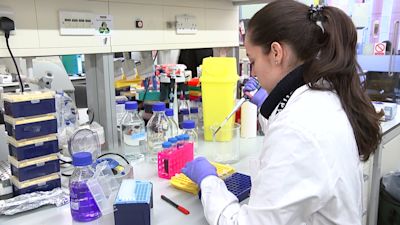NHS launch blood test to detect more than 50 forms of cancer before symptoms appear

The NHS has launched a simple blood test that may help identify more than 50 types of cancer, years before diagnosis.
The trial is being run by Cambridge-based Cancer Research UK and King's College London.
The blood test, known as Galleri, is the the first of its kind and has been hailed as a potential "gamechanger" which could save lives.
Blood samples will be taken from 140,000 volunteers, including here in the East, at mobile testing clinics in retail parks and other community locations.
“This quick and simple blood test could mark the beginning of a revolution in cancer detection and treatment here and around the world", NHS chief executive Amanda Pritchard said.
“By finding cancer before signs and symptoms even appear, we have the best chance of treating it and we can give people the best possible chance of survival.
“The Galleri blood test, if successful, could play a major part in achieving our NHS Long Term Plan ambition to catch three quarters of cancers at an early stage, when they are easier to treat."
NHS England hopes the test will help detect early signs of cancers that are hard to spot and so have worse survival rates, such as head and neck, bowel, lung, pancreatic, and throat cancers.
Letters have been sent out inviting tens of thousands of people from different backgrounds and ethnicities, aged between 50 and 77, to take part.
Participants, who must not have had a cancer diagnosis in the last three years, will be asked to give a blood sample and will then be invited back after 12 months, and again at two years, to give further samples.
Initial results of the study are expected by 2023 and, if successful, the NHS plans to extend the rollout to a further one million people.
Prof Peter Sasieni, Director of The Cancer Research UK & King’s College London Cancer Prevention Trials Unit and one of the trial’s lead investigators, said: “We need to study the Galleri test carefully to find out whether it can significantly reduce the number of cancers diagnosed at a late stage."
"The test could be a game-changer for early cancer detection and we are excited to be leading this important research. Cancer screening can find cancers earlier when they are more likely to be treated successfully, but not all types of screening work.”